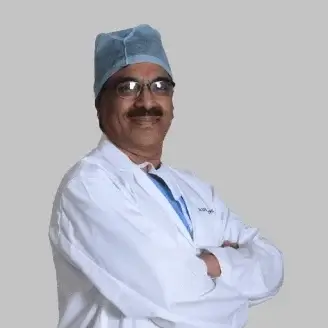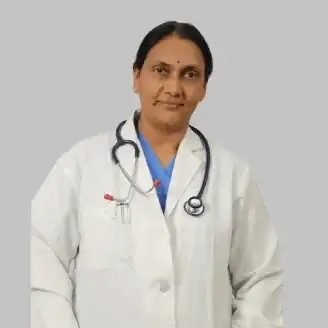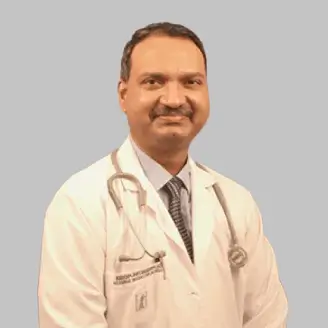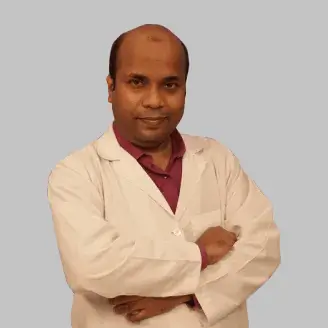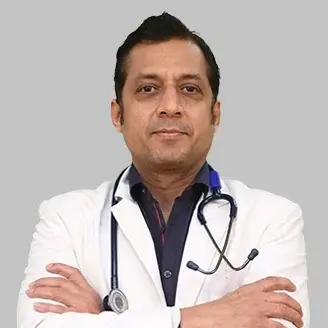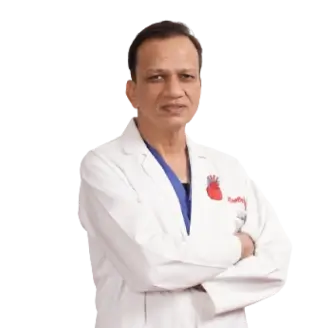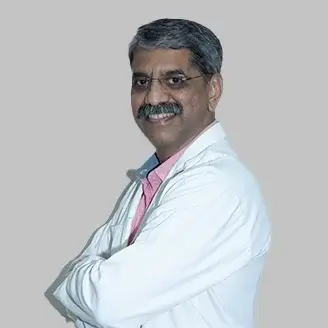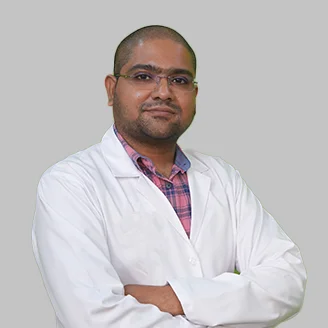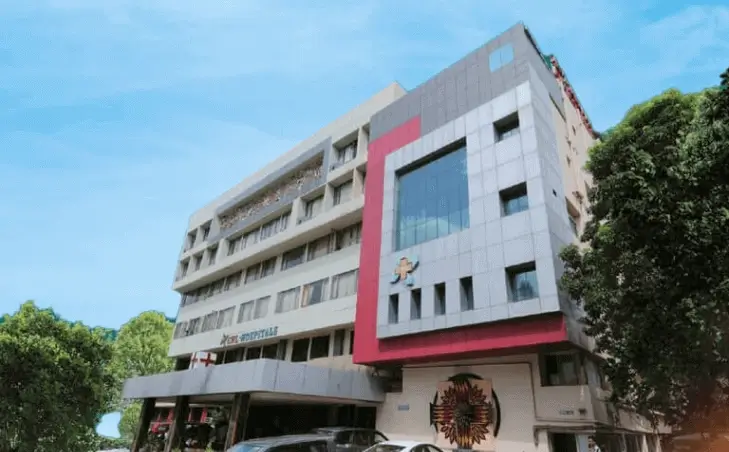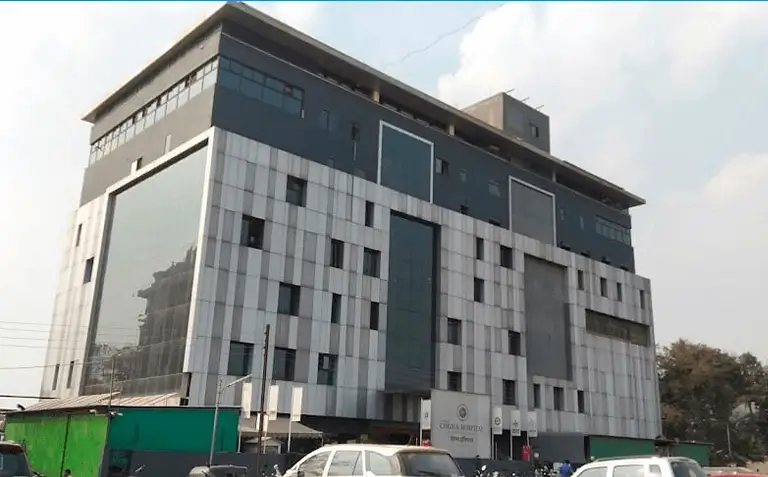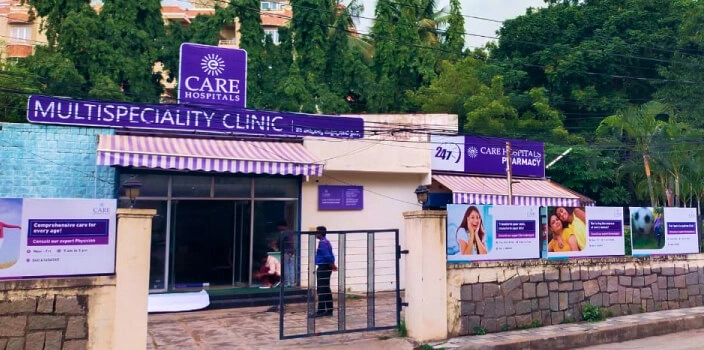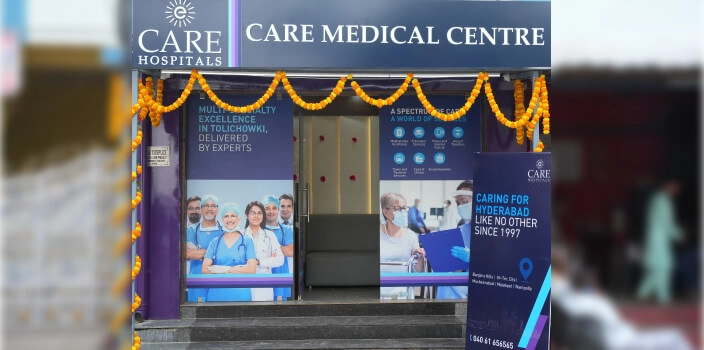-
Doctors
-
Specialities & Treatments
Centre of Excellence
Specialties
Treatments and Procedures
Hospitals & Directions HyderabadCARE Hospitals, Banjara Hills CARE Outpatient Centre, Banjara Hills CARE Hospitals, HITEC City CARE Hospitals, Nampally Gurunanak CARE Hospitals, Musheerabad CARE Hospitals Outpatient Centre, HITEC City CARE Hospitals, Malakpet
HyderabadCARE Hospitals, Banjara Hills CARE Outpatient Centre, Banjara Hills CARE Hospitals, HITEC City CARE Hospitals, Nampally Gurunanak CARE Hospitals, Musheerabad CARE Hospitals Outpatient Centre, HITEC City CARE Hospitals, Malakpet Raipur
Raipur
 Bhubaneswar
Bhubaneswar Visakhapatnam
Visakhapatnam
 Nagpur
Nagpur
 Indore
Indore
 Chh. Sambhajinagar
Chh. SambhajinagarClinics & Medical Centers
Book an AppointmentContact Us
Online Lab Reports
Book an Appointment
Consult Super-Specialist Doctors at CARE Hospitals

Best Hospitals for Atrial Septal Defect Surgery in Hyderabad
- Advanced Technology
- Shorter Hospital Stay
- Pre & Post-Operative Care
- All Insurance Accepted

Chat With Our Experts
Get second opinion on Whatsapp
25 lakhs+
Happy Patients
Experienced and
skilled surgeons
17
Health Care Facilities
Top most Referral Centre
for Complex Surgeries
Advanced Atrial Septal Defect (ASD) Surgery
Atrial Septal Defect (ASD), a congenital heart condition, requires expert care and advanced interventions. Advances in medical technology have made atrial septal defect closure safer and more effective. At CARE Hospitals, we combine cutting-edge technology with compassionate, patient-centred care to deliver exceptional outcomes in ASD defect treatment, making us the Best hospital for Atrial Septal Defect Surgery.
Why CARE Group Hospitals is Your Top Choice for ASD Heart Treatment in Hyderabad
CARE Hospitals stands out as the premier destination for ASD closure surgery due to the following:
- Highly skilled cardiology and cardiac surgery teams with vast experience in congenital heart defects
- State-of-the-art cardiac catheterisation laboratories and operating theatres equipped with advanced technology
- Comprehensive pre and post-operative care tailored to each patient’s unique needs
- A holistic approach to promote overall heart health and well-being
- Excellent track record of successful ASD closures with optimal functional outcomes
Best Atrial Septal Defect Surgery Doctors in India


Cutting-edge Surgical Innovations at CARE Hospitals
At CARE Hospitals, we harness the latest innovations to enhance the safety and efficacy of ASD treatment procedures:
- 3D Echocardiography: For precise defect visualisation and sizing
- Transcatheter ASD Closure Devices: Minimally invasive options for suitable candidates
- Advanced Cardiac Imaging: Including cardiac MRI for detailed structural assessment
- Robotic-assisted Surgery: Enhancing precision in open surgical ASD repairs when necessary
Conditions for ASD Treatment
Doctors generally suggest ASD treatment for various atrial septal defect types, including:
- Secundum ASD (most common type): A defect in the central part of the atrial septum (at the site of the foramen ovale)
- Primum ASD: Defect present in the lower part of the atrial septum
- Sinus venosus ASD: A defect near the entry of the superior vena cava or inferior vena cava into the right atrium
- Coronary sinus ASD: The wall between the coronary sinus and the left atrium is absent in this rare condition
Get Right Diagnosis, Treatment & Cost Estimate Details to
Make a Fully Informed Decision.
Types of ASD Treatment Procedures
CARE Hospitals offers different types of ASD treatment procedures tailored to each patient’s specific needs:
- Transcatheter ASD Closure: This minimally invasive procedure utilises a closure device to the heart, sealing the atrial septal defect without the need for open surgery.
- Open Heart Surgical Repair: This procedure involves accessing the heart through the chest to close larger or complex atrial septal defects directly.
- Robotic-assisted ASD Repair: A minimally invasive surgical option that uses advanced robotic technology to close atrial septal defects with precision.
- Patch Repair: Using synthetic material or the patient’s own tissue to close the defect. This procedure can be done during open-heart surgery or robotic-assisted repair.
Pre-treatment Preparation
Proper preparation is pivotal for the success of ASD treatment. Our cardiac team guides patients through detailed preparation steps, including:
- Comprehensive cardiac evaluation
- Echocardiogram and other imaging studies, such as cardiac CT scan and MRI
- Blood tests and electrocardiogram (ECG)
- Medication review and adjustments
- Preoperative counselling and emotional support
- Fasting instructions (if applicable)
ASD Treatment Procedure
The ASD treatment procedure at CARE Hospitals typically involves:
- For Transcatheter Closure:
- Administration of general anaesthesia or conscious sedation
- Insertion of a catheter through a vein in the leg
- Guidance of the closure device to the heart using fluoroscopy and echocardiography
- Deployment of the device to close the ASD
- Confirmation of proper placement and removal of the catheter
- For Surgical Repair:
- Administration of general anaesthesia
- Sternotomy or minimally invasive incision
- Connection to heart-lung bypass machine (if necessary)
- Direct closure of the ASD or patch placement
- Closure of the incision
Our skilled cardiac team ensures each step is performed with utmost precision and care, prioritising both treatment efficacy and patient safety.
Post-treatment Recovery
Recovery after ASD treatment is a crucial phase. At CARE Hospitals, we provide:
- Intensive care monitoring (for surgical cases)
- Pain management
- Wound care instructions (for surgical cases)
- Gradual return to normal activities
- Follow-up echocardiograms and check-ups
- Cardiac rehabilitation program (if necessary)
Recovery time varies and depends on the procedure type, with transcatheter closure patients often returning home within 24 hours, while surgical patients may require a hospital stay of 3-5 days.
Risks and Complications
ASD treatment, like any medical intervention, carries some risks. These may include:
- Infection
- Bleeding or bruising
- Arrhythmias
- Device displacement (for transcatheter closure)
- Residual shunt

Benefits of ASD Treatment
ASD treatment offers several benefits for patients:
- Prevention of long-term complications such as pulmonary hypertension and heart failure
- Enhanced exercise tolerance
- Improved overall quality of life
- Reduction in symptoms of ASD heart condition like shortness of breath and fatigue
- Normalisation of heart structure and function
- Potential elimination of the need for long-term medications
Insurance Assistance for ASD Treatment
At CARE Hospitals, we understand that navigating insurance coverage can be challenging. Our dedicated team assists patients in:
- Verifying insurance coverage
- Obtaining pre-authorisation
- Explaining out-of-pocket costs
- Exploring financial assistance options if needed
Second Opinion for ASD Treatment
Our medical experts encourage patients to seek a second opinion before undergoing ASD treatment. CARE Hospitals offers comprehensive free second opinion services, where our expert cardiac specialists:
- Review your medical history and diagnostic tests
- Discuss treatment options and their potential outcomes
- Provide a detailed assessment of the proposed treatment plan
- Address any concerns or questions you may have
Conclusion
ASD surgical closure is a procedure to repair a hole in the heart's septum, restoring normal circulation. Our expert cardiologists and cardiac surgeons' team, state-of-the-art facilities, and comprehensive care approach make us the top choice for Advanced Atrial Septal Defect Surgery. Trust CARE Hospitals to guide you through every step of your cardiac health journey with expertise, compassion, and unwavering support.
Atrial Septal Defect Surgery Hospitals in India
-
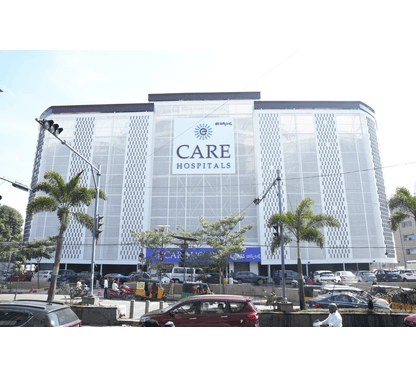
CARE Hospitals, Banjara Hills, Hyderabad
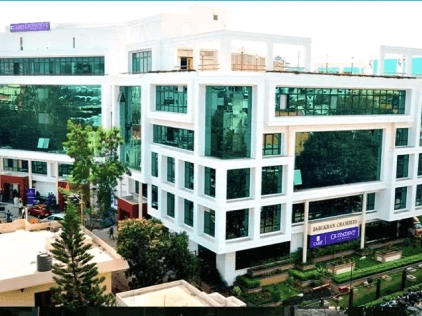
CARE Hospitals Outpatient Centre, Banjara Hills, Hyderabad
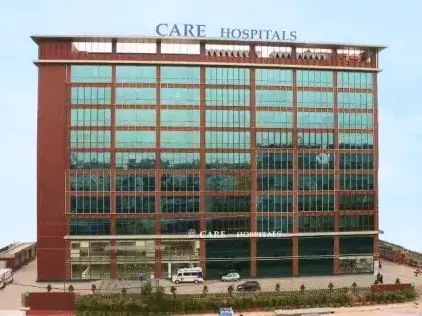
CARE Hospitals, HITEC City, Hyderabad
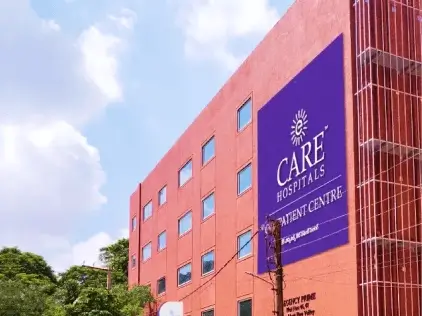
CARE Hospitals Outpatient Centre, HITEC City, Hyderabad
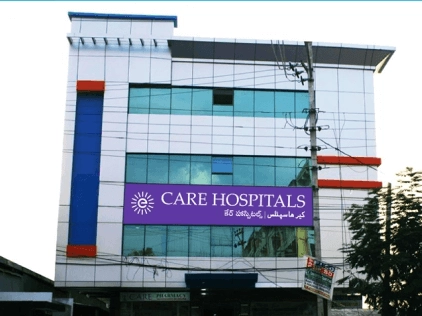
Gurunanak CARE Hospitals, Musheerabad, Hyderabad
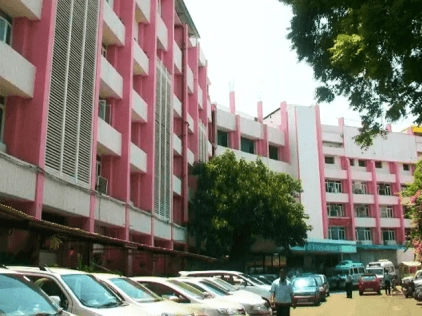
CARE Hospitals, Nampally, Hyderabad
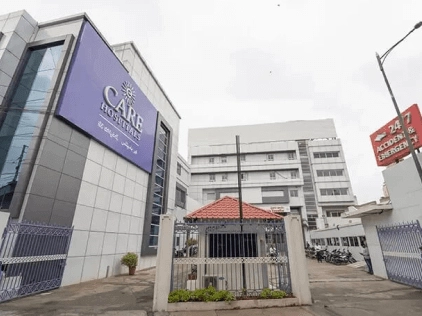
CARE Hospitals, Malakpet, Hyderabad
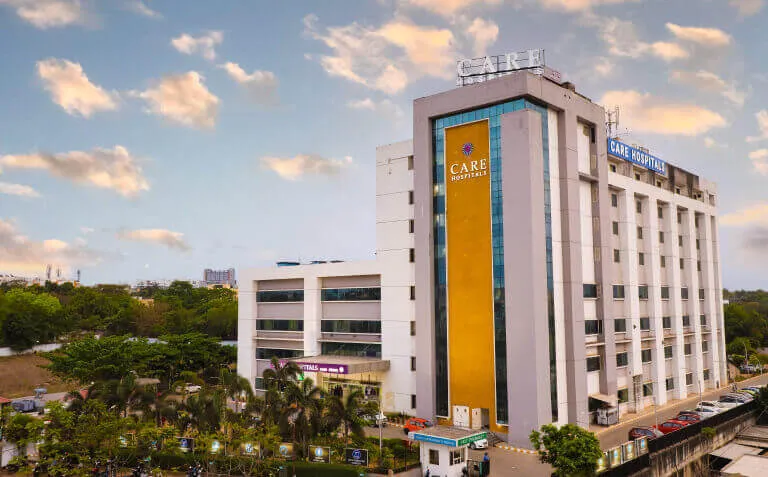
CARE Hospitals, Bhubaneswar
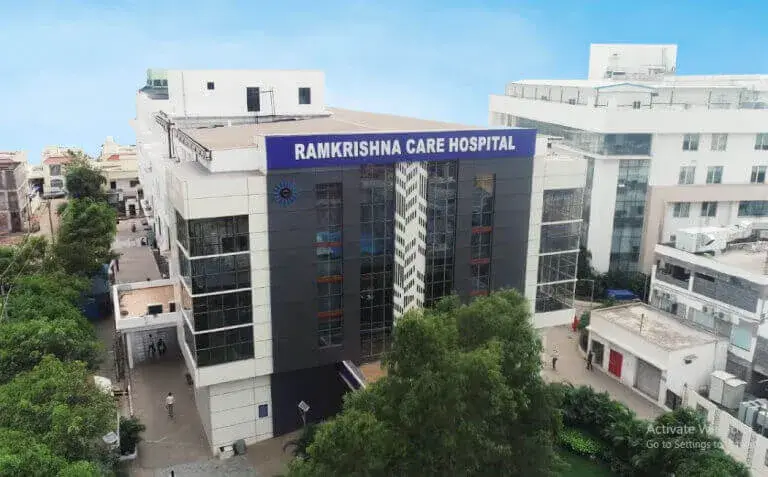
Ramkrishna CARE Hospitals, Raipur
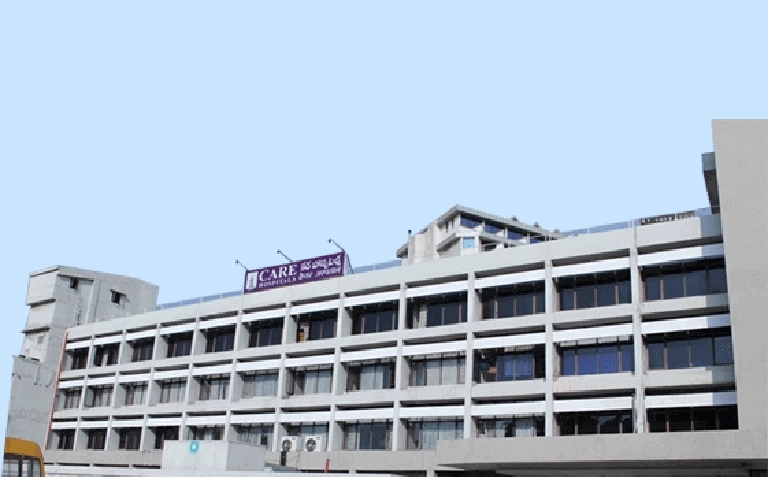
CARE Hospitals, Ramnagar, Visakhapatnam
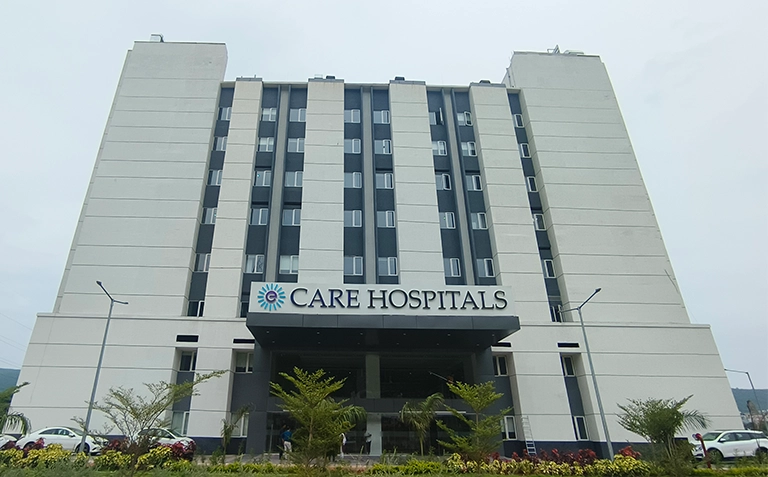
CARE Hospitals, Health City, Arilova
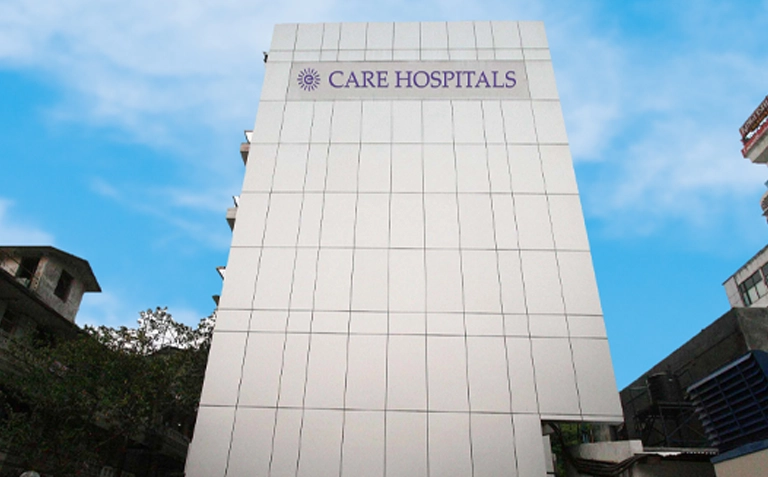
Ganga CARE Hospital Limited, Nagpur
Related Surgeries
- Best Hospitals for Cesarean Delivery in Hyderabad
- Best Hospital for Vaginal Hysterectomy in Hyderabad
- Best Hospital for Cholecystectomy Surgery in Hyderabad
- Best Hospital for Colectomy Surgery in Hyderabad
- Best Hospitals for Colostomy Surgery in Hyderabad
- Best Hospitals for Laparotomy Surgery in Hyderabad
- Best Hospital for Parotidectomy Surgery in Hyderabad
- Best Hospitals for Ovarian Cancer Surgery in Hyderabad
- Best Hospitals for Pancreatectomy Surgery in Hyderabad
- Best Hospitals for Sigmoidoscopy Surgery in Hyderabad
- Best Hospitals for Endometrial Cancer Surgery in Hyderabad
- Best Hospitals for Whipple Surgery in Hyderabad
- Best Hospitals for Thyroidectomy Surgery in Hyderabad
- Best Hospitals for Cardioversion Procedures in Hyderabad
- Best Hospitals for Pacemaker Insertion Surgery in Hyderabad
- Best Hospital for Endovenus Laser Surgery in Hyderabad
- Best Hospitals for Atrial Septal Defect Surgery in Hyderabad
- Best Hospital for Video-Assisted Thoracoscopic Surgery in Hyderabad
- Best Hospital for Ventricular Septal Defect Surgery in Hyderabad
- Best Hospital for Heart Valve Replacement Surgery in Hyderabad
- Best Hospital for Thoracotomy Surgery in Hyderabad
- Best Hospitals for Pericardiectomy Surgery in Hyderabad
- Best Hospitals for Aortic Valve Replacement Surgery in Hyderabad
- Best Hospitals for Mitral Valve Replacement Surgery in Hyderabad
- Pneumonectomy Surgery in Hyderabad
- Spinal Fusion Surgery in Hyderabad
- Best Hospitals for Ankle Surgery in Hyderabad
- Best hospital for carpal tunnel release surgery in Hyderabad
- Best Hospitals for Ligament Repair Surgery in Hyderabad
- Best Hospitals for Elbow Surgery in Hyderabad
- Best Hospitals for Arthroscopic Meniscal Repair Surgery in Hyderabad
- Best Hospitals for Laminectomy Surgery in Hyderabad
- Best Hospital for Bladder Suspension Surgery in Hyderabad
- Best Hospital for Oesaophagectomy Surgery in Hyderabad
- Best Hospitals for Roux-en-Y Gastric Bypass in Hyderabad
- Best Hospitals for Small Bowl Resection in Hyderabad
- Best Hospitals for Vasectomy in Hyderabad
- Best Hospital for Tubal Ligation Surgery in Hyderabad
- Best Hospitals for Endometrial Ablation Surgery in Hyderabad
- Best Hospital for Arthroscopy Surgery in Hyderabad
- Best Hospital for Choledochocystectomy Surgery in Hyderabad
- Best Hospital for Choledochojejunostomy Surgery in Hyderabad
- Best Hospital for Choledocoduodenostomy Surgery in Hyderabad
- Best Hospital for Circumcision Surgery in Hyderabad
- Best Hospital for DJ Stent Removal Surgery in Hyderabad
- Best Hospital for Fistula Surgery in Hyderabad
- Best Hospital for Hiatus Hernia Surgery in Hyderabad
- Best Hospital for Incisional Hernia Surgery in Hyderabad
- Best Hospital for Laparoscopic Hysterectomy Surgery in Hyderabad
- Best Hospital for Laser Prostatectomy Surgery in Hyderabad
- Best Hospital for Open Reduction Internal Fixation (ORIF) Surgery in Hyderabad
- Best Hospital for PCNL Surgery in Hyderabad
- Best Hospital for Penile Implant Surgery in Hyderabad
- Best Hospital for Piles Surgery in Hyderabad
- Best Hospital for Pilonidal Sinus Surgery in Hyderabad
- Best Hospital for Peroral Endoscopic Myotomy Surgery in Hyderabad
- Best Hospital for Retrograde Intrarenal Surgery in Hyderabad
- Best Hospital for Spine Decompression Surgery in Hyderabad
- Best Hospital for Squint Eye Surgery in Hyderabad
- Best Hospital for Thyroplasty Surgery in Hyderabad
- Best Hospital for Turp Surgery in Hyderabad
- Best Hospital for Ureteroscopic lithotripsy Surgery in Hyderabad
- Best Hospital for Vitrectomy Surgery in Hyderabad
- Best Hospital for VP Shunt Surgery in Hyderabad
- Best Hospital for Wisdom Tooth Surgery in Hyderabad
- Best Hospitals for Oophorectomy in Hyderabad
Frequently Asked Questions
ASD treatment aims to close the hole between the heart’s upper chambers, preventing complications and improving heart function.
Transcatheter closure typically takes 1-2 hours, while surgical repair may take 2-4 hours, depending on the complexity of the defect.
Patients receive anaesthesia during the procedure, ensuring minimal discomfort. Some post-procedure soreness is normal but manageable with pain medication.
Recovery time varies. Transcatheter patients often resume normal activities within a week, while surgical patients may need 4-6 weeks for full recovery.
While rare, risks may include infection, bleeding, arrhythmias, and device-related complications. Our cardiac surgery team takes every precaution to minimise these risks.
Candidates include individuals with significant ASDs causing symptoms or posing risks for future complications. The specific treatment approach depends on the defect size, location, and patient factors.
Yes, most patients return to normal activities and enjoy improved quality of life after successful ASD treatment.
Initial follow-ups are typically scheduled at 1 week, 1 month, and 6 months post-procedure, with annual check-ups thereafter. Your cardiologist will personalise this schedule based on your specific case.
Following their doctor's guidance, most patients can gradually return to normal activities, including exercise. Your doctor will provide specific suggestions based on your recovery progress.
Most insurance plans cover medically necessary ASD treatments. Our Cardiac team will assist you in verifying your coverage and understanding your benefits.
Still Have a Question?


